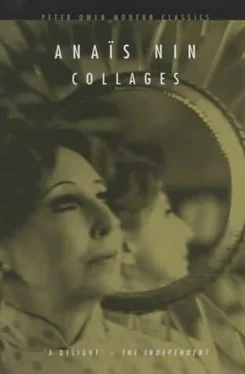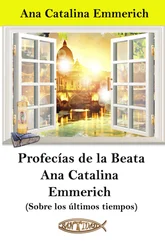Tessa’s voice grew lighter and younger, even though the tired heart caused breathlessness between each sentence. She was elated to think that Colonel Tishnar had run away so far from her power and charm.
“And do you know, Renate, I think he is right. I am sure I would have been unfaithful to him.”
So there was Colonel Tishnar already won, married, and betrayed, all in a few hours, a victory to stimulate the failing heart of any woman.
RENATE GREW TIRED OF PAINTING PORTRAITS, of hostessing, of designing dresses, and so she made a plan for a new magazine.
way out because they were out of the way of people who never left their offices.
John was a clairvoyant film critic and he wrote for Renate describing all the beautiful and original scenarios written by writers of quality which lay in “cold storage” in the studios. He also wrote a dazzling article made up of all the paragraphs which had been lopped off at the beginning, in the middle or sometimes at the end for the sake of layout.
Judith Sands offered several stories which were too long or too short for other magazines, and which did not tie up with any journalistic news item like a play on Broadway, a film in Hollywood, or a murder, or burglary or a leap from the fifteenth floor.
Several novelists had beautiful chapters left out of their novels. The novels had been weighed on a scale and found to be two ounces overweight.
Betty was dressing dummies for Saks windows, but she was skilled in lively and seductive layouts. She did not split stories into fifteen to-be-continued columns interrupted with gaudy advertisements. She quarantined commercials.
Henri offered his most secret recipes.
Harry sold records in a music store, and had stored in his mind the most complete knowledge of jazz music and its composers.
Renate was inviting contributions born of enthusiasm, inventiveness, novelty, exploration, of people in love with their media and whose love was contagious. What she banished was the bored critics, the imitators, the second-handers, the standardized cliches. Even the first dummy aroused in people a feeling they were at last to know, read, see everything other magazines neutralized, dissolved, synthesized, deodorized, sterilized, disguised, monotonized, mothproofed, and sprayed with life-repellents.
“It must be alive,” was Renate’s only editorial principle.
Alive like Don Bachardy’s line portraits of personalities, like Renate’s women and animals, like Judith Sands’ stories of cities and the lovers who had lived in them, or the Consul’s wife’s selection of how writers had written about women dressing (or undressing) and a thousand other scintillating subjects which other editors believed radioactive.
Renate advertised for capital. The very same evening she received a telephone call: “My name is John Wilkes. I am answering your advertisement. I like the idea of your magazine. I am 27 years old. I made my money in oil wells in Phoenix. Send me the dummy. Here is my address. But do not telephone me. It makes me nervous. I am always on the go for business. I never know where I am going to be. Send me a budget for what you will need to run for a year. Tomorrow I fly to New York for a conference. The next day I may be in Egypt. I am bored with business and welcome a new interest.”
Renate posted the dummy. The young millionaire telephoned again: “I am in New York. I received the dummy. I like your ideas. Keep working on them. As soon as I can I will fly to Los Angeles and meet your staff and your lawyer. Tell your lawyer to prepare a rough draft of the contract.”
Renate made the usual inquiry about Mr. John Wilkes. The answer was: “Unknown.” But it was suggested that John Wilkes might have accounts in the name of his company. Or perhaps not in Phoenix at all. So Renate relinquished the search for credit references.
Manuscripts began to arrive, cartoons, letters, recordings to review, books to review, passes to film openings, theatre openings. Renate and her staff were invited to fashion shows, exhibitions, to travel at half-rates to Paris, to visit film stars, to interview visitors from Japan.
They all gave up their routine jobs. Renate had cards printed with their various titles. Every morning enough original material arrived to fill a magazine each day.
John Wilkes was still busy, flying here and there, but always telephoning, always interested. He sent a photograph of himself. He looked as Gary Cooper looked at his age.
Renate rented an office. Friends helped her to decorate it. The symbol of it was a mobile. Several mobiles hung from the ceiling, setting the theme of liveliness and motion of the magazine.
In a few weeks they were in touch with all the countries they had wanted to visit, all the personalities they had wanted to know. It was if everyone responded to the ebullience and felt attracted to the atmosphere not yet desiccated by story conferences and dehydrated by editorial policies. Secret wishes and fantasies were being materialized. Every encouraged idea generated a new one. Renate could hardly contain the richness. It was like an oil well which had overflowed. Circulation problems? Only a problem of circulation of the blood.
John Wilkes applauded, laughed, shared in the universe born of yes. He sponsored Renate’s gaiety and originality, her belief that ideas must only be handled by the one who gave birth to them or else they withered.
“Is it time for a celebration?” they asked.
Renate said: “Let’s wait until John Wilkes comes. Let’s wait until the contracts are signed.”
But they bought champagne. It was such a delight to buy champagne and fill in a slip which would be paid by the expense account. No more concern over narrow personal budgets. What a delight to take a taxi when carrying heavy portfolios and charge it. What a delight to eat in a new restaurant every day and be treated like a millionaire so one would write flatteringly about the dinner. What delight to visit the printer all of them knew, and to be able to say to him they would pay him handsomely this time. What delight to plan for Christmas in June, to reserve hotel rooms for the film festivals at Venice, to plan for Spoleto, to accept invitations to the jazz festivals.
John Wilkes arrived. He and Renate spent three whole days with lawyers. Renate looked tired but elated. “He says yes to everything. ”
In the climate of enthusiasm, new ideas proliferated.
At last the contracts were done with. The young millionaire had consented to everything. He had also agreed to meet the staff, and to have champagne with them. They were to gather at Renate’s house.
The sun gold-leafed the sea, the tips of the leaves, the window panes, the pottery and the paintings. Cars arrived. Everyone seemed to feel lighter, to walk more confidently.
Bruce brought Renate an umbrella for her trip to Paris. It was made of cellophane, and planted with bunches of plastic violets. To walk in the rain and yet be able to see the sky, the buildings, the people. And her face behind it when she opened it was like the face of a mermaid in an aquarium. The violets seemed planted in her dark hair.
But John Wilkes did not arrive. The telephone rang. He excused himself. He had been called to a conference in Denver. Anyway, he had to take the contracts to his own committee and mail the checks to close the deal.
There was a moment of suspense.
“Oh, we mustn’t be superstitious,” said Renate, “that’s how millionaires behave. They are always in business conferences. They have no time for celebrations.”
They drank the champagne, but for the first time their gathering seemed more like the gathering of other magazine staffs, solemn and cautious.
The next day there was silence and suspense, as if the post office, the telegraph office, the bank, and the postman must not be disturbed in the performance of their duties. They did not telephone each other with new ideas.
Читать дальше












